England v Wales in Six Nations: Hosts survive late panic
- Published
- comments
Highlights: England 25-21 Wales
Eddie Jones may only have been England's coach for four games, but already he has a veteran's understanding of how it has to be when his adopted nation succeed in sport.
Never is it easy. Seldom is it predictable. Only occasionally does it not involve knocking knees and mangled nerves.
The Grand Slam dream is on for England, but this was so nearly a nightmare to out-do even the horrors of the World Cup defeat seven months ago.
England were 16-0 ahead at half-time, a lead that should have been at least seven points wider. With seven minutes to go that had shifted out to 25-7. Game over. Set sights on Paris, start thinking about only a second Slam in 20 years.
More on England v Wales | |
|---|---|
Maybe that was the problem. That, a couple of missed tackles, and Rhys Priestland suddenly moving the ball like Rhys Priestland can sometimes, and George North racing away for one try, and then Toby Faletau crashing through for another.
Four minutes, 14 points. Twickenham gone from party to panic, England defending with 14 men, North set free again to accelerate at the left-hand corner flag.
In that World Cup match England had blown a 10-point lead with just over half an hour to play, thrown away a seven-point advantage with 10 minutes left. In 2008, at the start of Wales' own Grand Slam year,, external they had led 16-6 at the interval and shipped 20 points after it.
This would have been more calamitous still. Had Manu Tuilagi not reached North and shoved him into touch, it might have come to pass. Had the line judge the advantage of the many screen-grabs doing the social media rounds late on Saturday night, he might not have called North out at all.
Tuilagi had been predicted to make a critical impact off the bench. What no-one foresaw was that it would be with a tackle rather than a run.
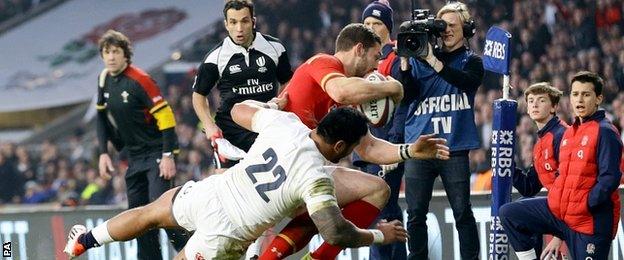
Manu Tuilagi's biggest contribution from the bench was a crucial tackle on Wales winger George North
It should never have got so close, for this was a match not only being dominated by England at the interval but being butchered by Wales.
Wales coach Warren Gatland was full of furrowed-brow fury afterwards. "Only the players can answer the question why they were so flat and lethargic, because we didn't turn up in that first half. At this level it's not acceptable as far as I'm concerned."
You could understand the anger even if you took umbrage at the abdication of responsibility, or neglected to recall that the same thing happened in their opening fixture against Ireland.
In Dublin, Wales had fallen 13 points down before rousing themselves and fighting back for a draw that could have been more. At Twickenham they were not just off the pace but off the scale.
Nineteen missed tackles in the first 40 minutes alone, eight penalties conceded, line-outs lost, hard hands and soft heads everywhere. Alex Cuthbert had one of those games when he looks less like a lethal finisher and more like a man likely only to shoot himself in the foot.
The only complaint about England was one that dogged them under previous coach Stuart Lancaster: a profligacy in attack, a lack of ruthlessness with the line in sight and the defence splintered.
Six Nations 2016: Eddie Jones eyeing Grand Slam for England
Twice in the first 20 minutes they blew clear try-scoring chances, once when Mike Brown cut back inside rather than pinning back ears for the empty corner, again when George Ford failed to spot Anthony Watson overlapping and unmarked outside him and held on instead.
Ford endured one of his more difficult games, his charged-down kick leading to the Dan Biggar try that first gave Wales hope, even if Ben Youngs' long, underpowered pass also played its part.
There was so much else that was good about England that it didn't seem to matter. Quick ball from the forwards put Youngs on his toes and the men outside him in space. Smart use of that ball stretched the usually tight Welsh defence one way and then back the other.
Leading the charge was Maro Itoje, described by Jones as a Vauxhall Viva at the start of this campaign,, external upgraded to an Astra after his first start a fortnight go, on Saturday crashing through tackles like a bulldozer, digging at the breakdown like a JCB and accelerating away from defenders like a Porsche.
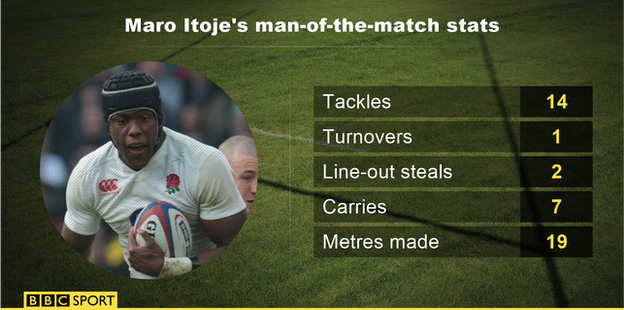
For a 21-year-old in his first season of international rugby it was dangerously close to the complete second-row performance: 14 tackles, more than any other England player, two defenders beaten, one clean break made, a turnover won, two Welsh line-outs stolen and all four thrown to him secured.
It is just one reason why England supporters will go into next Saturday's Grand Slam decider against France with significantly more optimism than the last two times a clean sweep was in sight.
They are away once again, just as they were against Wales on the final night of the 2013 season and against Ireland on the last afternoon in 2011., external
But while Wales were a team with two Slams of their own in the previous four seasons and a side about to supply the key men in a Lions series victory, and Ireland a team containing two of the all-time greats in Brian O'Driscoll and Paul O'Connell, this is a French side as predictable as those of old were cavalier.
Not since 2011 have they finished above fourth in the Six Nations table. Only once in the past five meetings between these two in this tournament have they emerged victorious, and that with a last-gasp try two years ago.
Springtime in Paris has always held its own special allure. Next Saturday it could be where an English nation falls in love with a small, hard-bitten Australian who used to delight only in winding them up.
"The Grand Slam is on, isn't it?" grinned Jones on Saturday night, eschewing the caution and caveats more familiar to men with his job. "All we need to do is prepare well. We prepare well, we play well, we win the game."
Simple. Or so he will hope, this time at least.
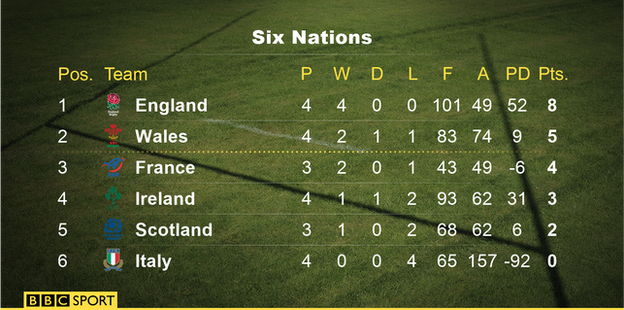
- Published12 March 2016
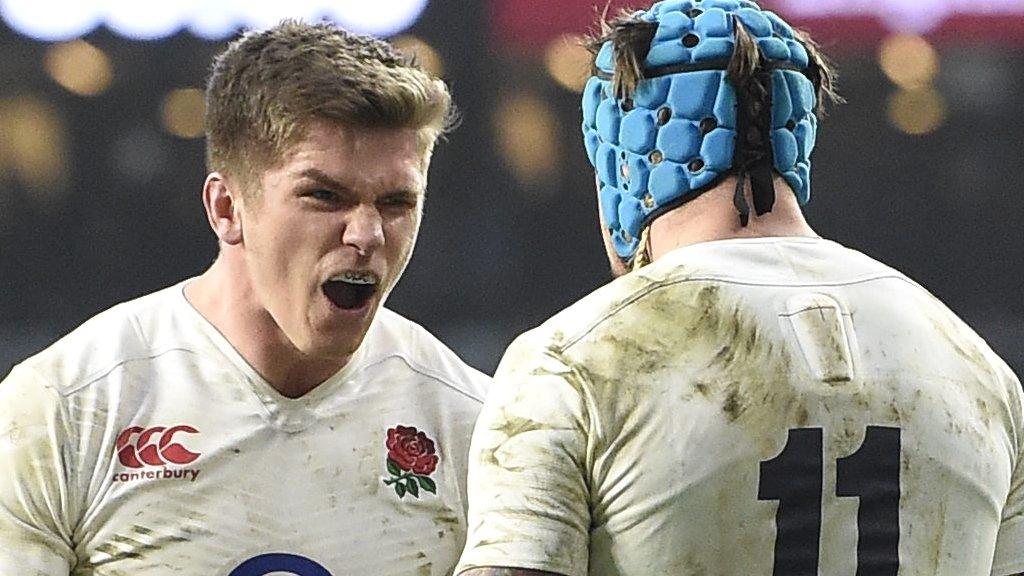
- Published12 March 2016
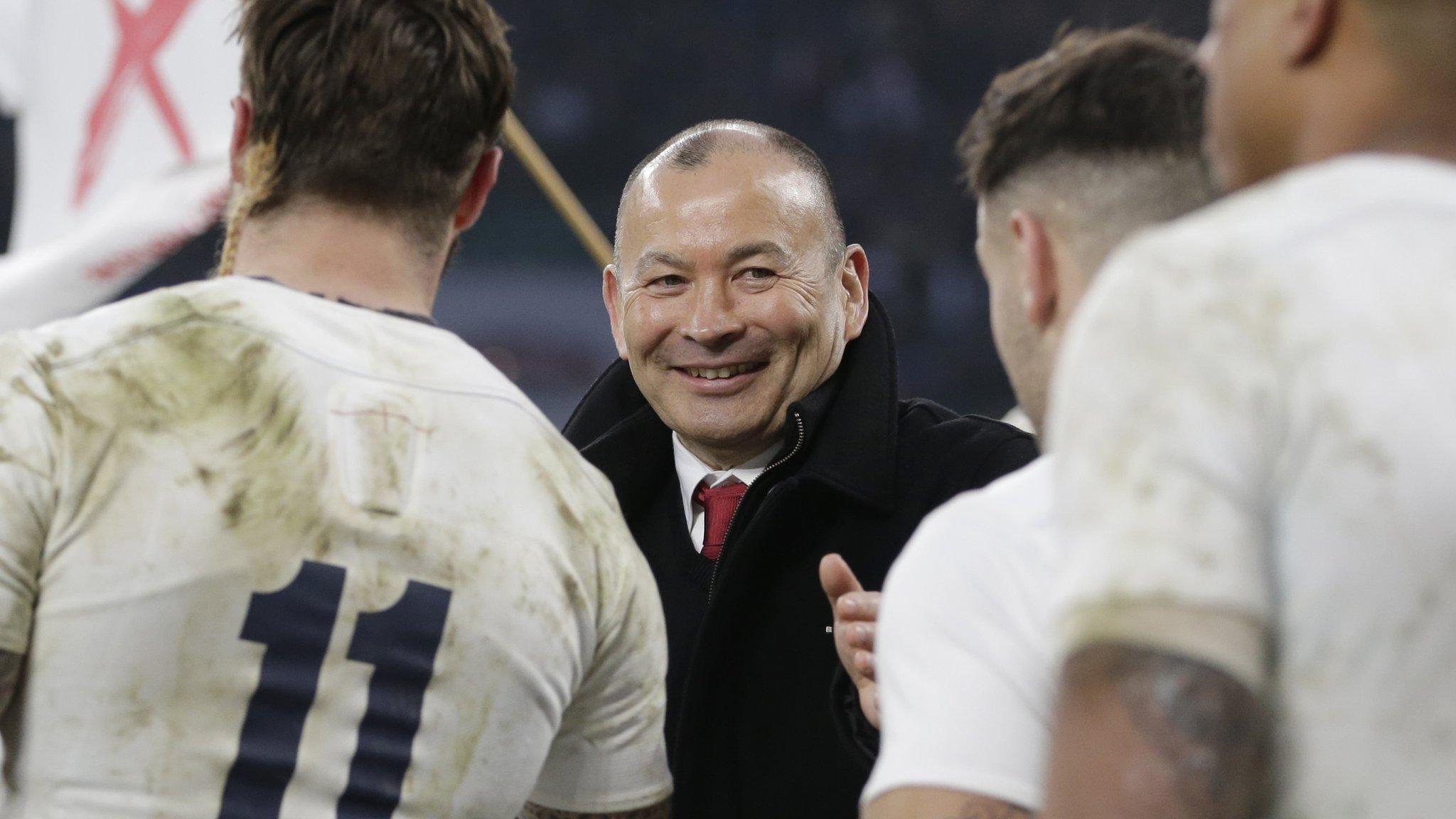
- Published12 March 2016
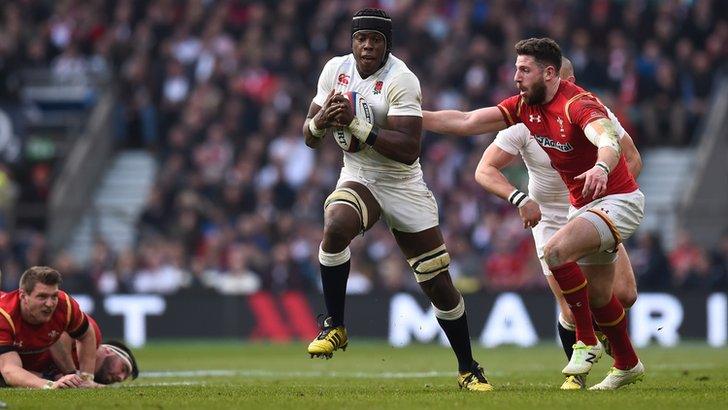
- Published12 March 2016
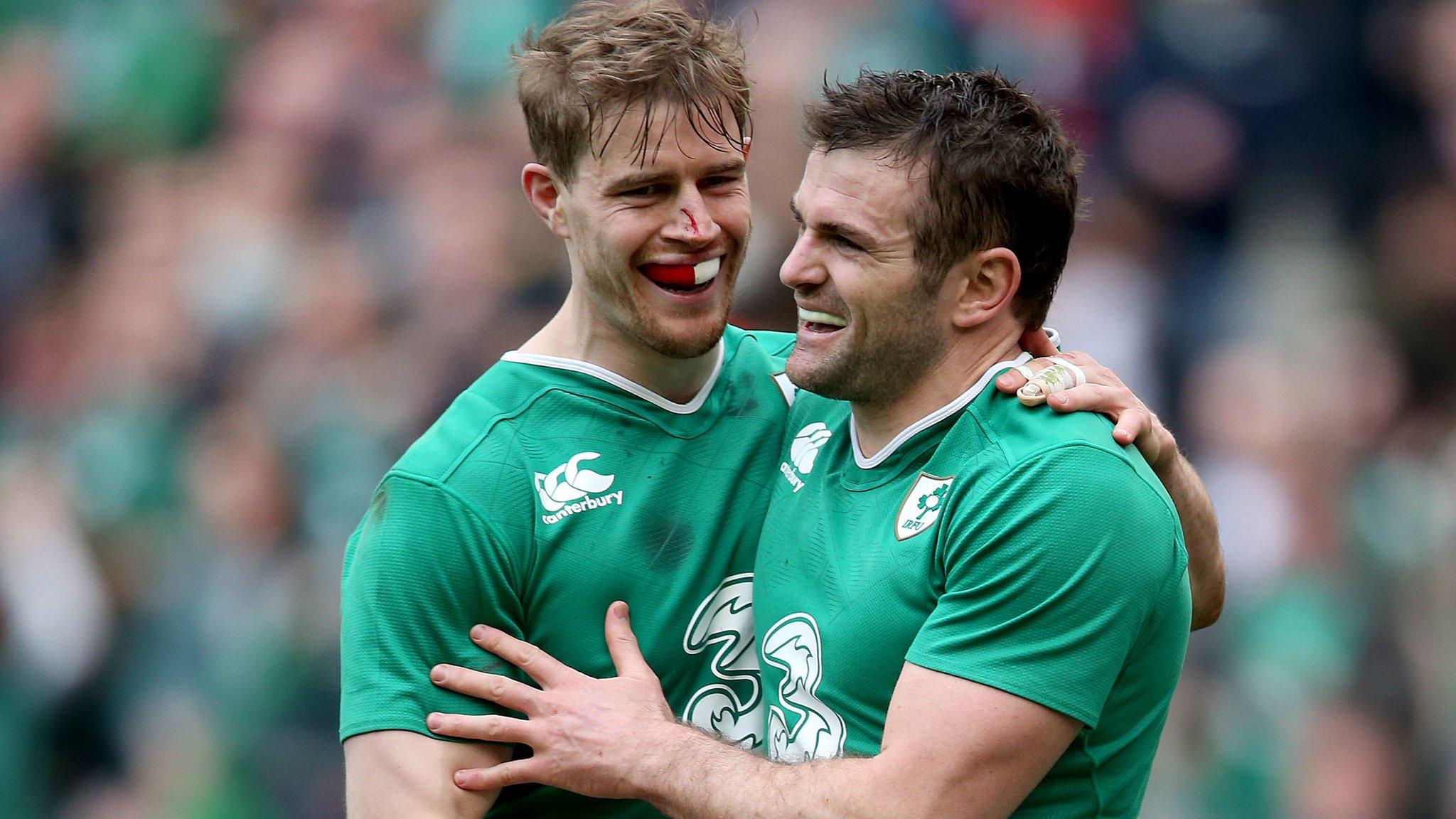
- Published9 March 2016
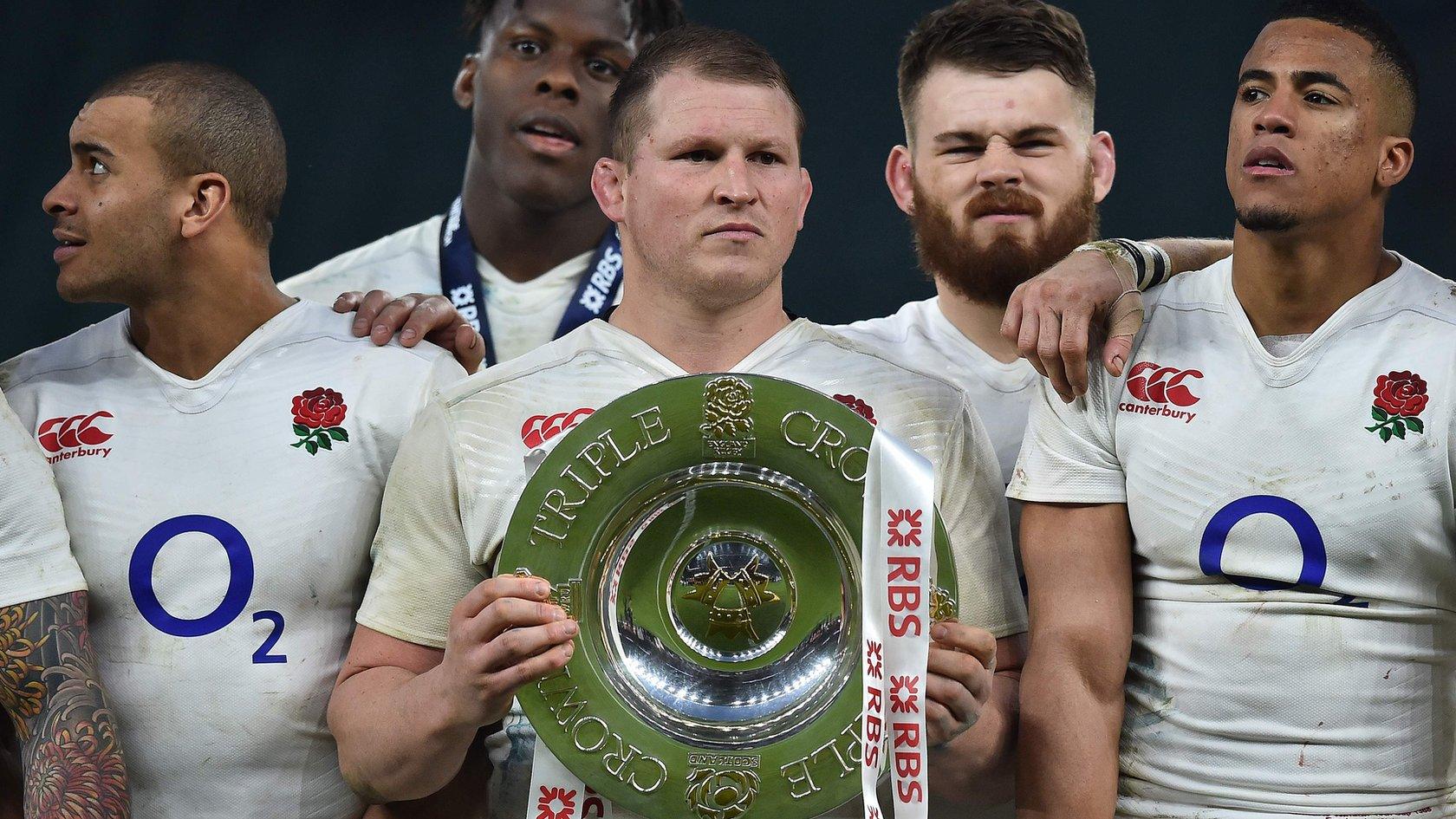
- Published10 February 2016
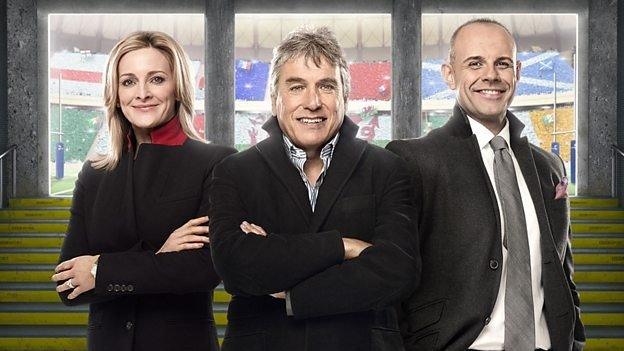
- Published14 September 2016

- Published15 February 2019
